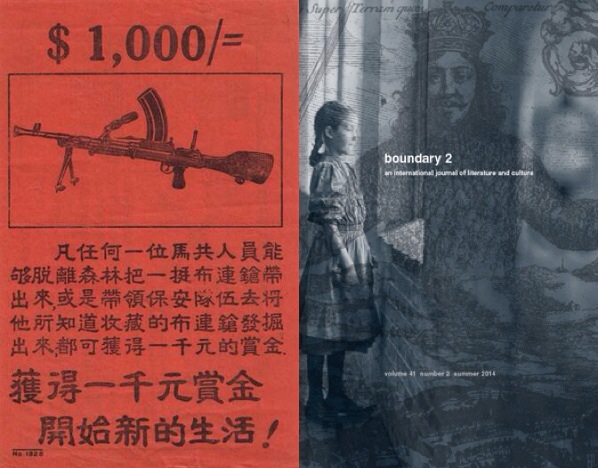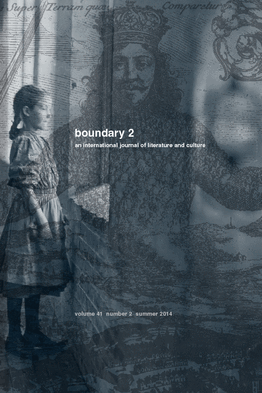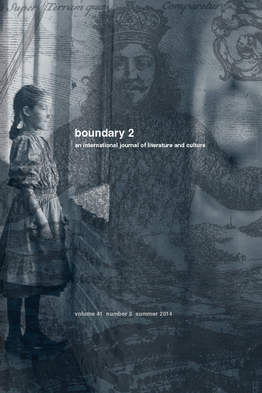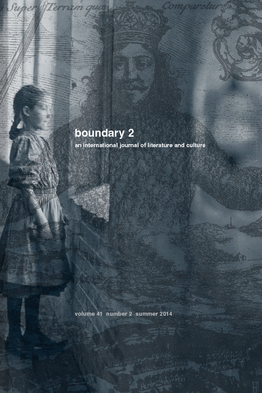a response by Arif Dirlik
~
Susan Buck-Morss’ essay, “Democracy: An Unfinished Project,”1 provides occasion for reflecting on a challenge that faces contemporary radical criticism in North America and Europe: how to reconcile the universalist goals that are the legacies of Euromodernity to radical thinking with the demands of cultural voices emanating from newly-empowered societies that make their own claims on modernity, especially when contradictions between the two seem irreconcilable? Buck-Morss’ discussion navigates through questions thrown up by this dilemma with finesse, engaging critiques of Euromodernity without relinquishing its promises, which demand recognition even by those who would reject it. The title would have reflected the content of the essay more fully had it been elongated to: “Democracy: An Unfinished Project: A Critique of Davut Ahmutoglu’s Project of Islamic Modernity.” Ahmet Davutoglu, Minister of Foreign Affairs when the article was written, just recently has been elevated to the post of Prime Minister of the Republic of Turkey. He is a politician with academic credentials. Author of studies on Islamic politics, international strategy and modernity, he displays a strong philosophical bent in his writings which is important for understanding his policies as well….He believes that “ontological differences” between “Islam” and “the West” call for an “alternative modernity” based on Islamic principles. Like the AKP(Justice and Development Party) and others in the Islamic movement, he seeks to roll back the secularist policies instituted by the Republic after 1923, and to restore to Turkey the glory and power of the Ottoman Empire….
Buck-Morss offers telling critiques of these claims ….Given the venue (a conference in Istanbul) where the article was first presented as a paper, it may be understandable that the author would go about some of her arguments in a roundabout way, skirting issues that might be too venturesome into sensitive territory of national sentiment. While Buck-Morss offers a political reading of claims to an Islamic modernity, what is missing from the discussion is the actual practice of politics. In her addendum she takes note of the Gezi protests of June 2013 that intervened between the initial presentation and the final publication of the paper. She apparently did not think these events and their outcomes to be sufficiently important to introduce them into a more directly political reading of the claims made for Islamic modernity by the likes of Davutoglu who, as a leading member and brain-trust of his party, had no qualms about the suppression of that broad-based democratic movement, instigated by government disregard for public sentiment in its promotion of neo-liberal economic agenda….
Buck-Morss is primarily interested in Davutoglu’s “reliance on certain Western methodologies, specifically twentieth-century German phenomenology.” This may unduly credit with philosophical intent a political operator whose “political analysis,” according to Turkish scholar Behlul Ozkan, “remains on the level of prophecy rather than prognosis,” and whose “pseudoscientific” ideas are “based on inspiration related to historical destiny rather than rational thought.” Ozkan writes that “Davutoglu’s writings reveal his central concern to be not values but power politics.” The most visible imprint of Western sources on his thinking is geopolitical.
The discussion only indirectly hints at the alliance between neoliberal global capitalism and claims to unchanging religious or more broadly “cultural” identities that characterizes the ideology of the Islamic leadership in Turkey—as of all the societies that have found new economic and political opportunities within the context of global capitalism and the seeming decline in Euro/American hegemony, most importantly, the People’s Republic of China…. In those societies descended from empires that for long ruled large parts of the world earning them the title of “civilizations,” newfound power and influence have triggered what may best be described as nostalgia for future reproduction of past glories…. Ethical values claimed for various civilizations may serve as a cover for but barely disguise the privatization of public resources, creation of new class divisions, the concentration of wealth in ever fewer hands, and the sacrifice of public interest and rights to the interests of ruling elites in the name of development that is characteristic of global capitalism in general….The point here is not whether these cultural traditions deserve respect, or have anything to contribute to global futures. The point is rather that what they have to contribute is to be judged not by the texts they claim for their origins or abstract claims about civilizations detached from history, but by the historical outcomes of activity conducted in their name. And the outlook presently is not all that promising.
_____
notes:
1. boundary 2, 41.2 (Summer 2014): 71-98. In-text references are from this text.
Back to the essay
_____



